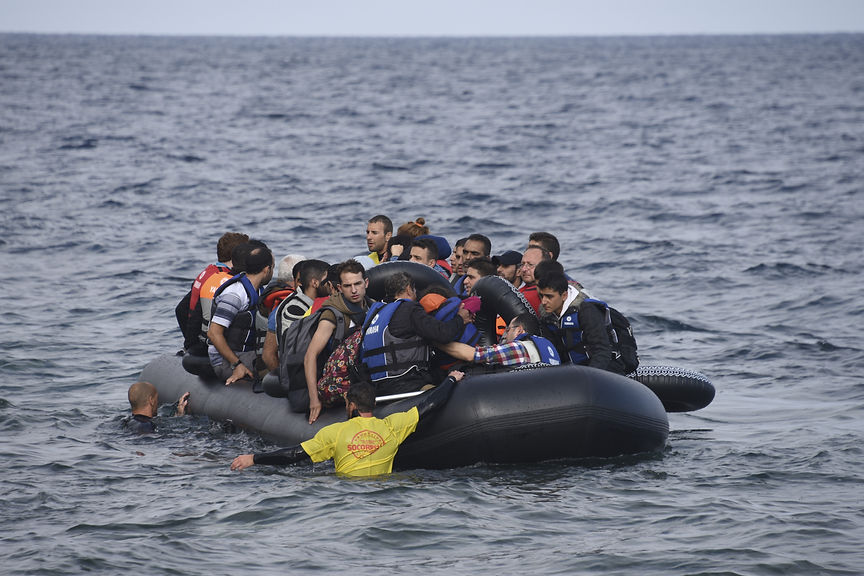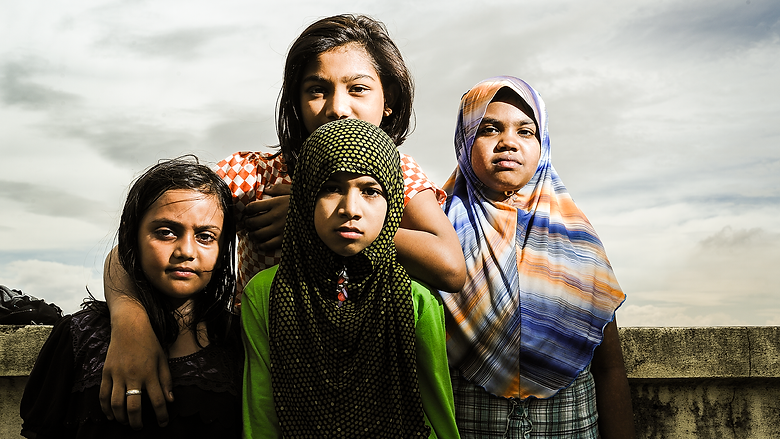
REFUGEES

REFUGEES IN THAILAND
Thailand is not a signatory to international treaties that recognize and protect refugees. Consequently, the government considers refugees to be “illegal migrants”: they are not citizens, they do not have access to health, employment, or education. Even those born in Thai territory (there are refugee camps over 30 years old) do not have their citizenship recognized and must live exclusively in refugee camps, without the right to work or even to leave. Those who choose to live and work outside the fields are considered illegal and highly susceptible to arrest and deportation. Without government assistance and employment opportunities, they depend entirely on social organizations for food and other basic resources.
It is estimated that there are now more than 130,000 refugees in Thailand.
Most refugees live in camps located near the Myanmar border. They are of ethnic minorities persecuted in the neighboring country, who crossed the border in search of shelter. Among them the Karen and Karenni, with a large number of Christians. There are also the Rohingyas, a majority Muslim ethnicity, born in Myanmar who, in addition to not being recognized as citizens, have been experiencing enormous persecution and forced exodus for many years, displacing more than 1 million people.
Get to know the different definitions of migration and displacement
.jpg)
Refugees
Anyone who, due to a well-founded fear of persecution due to their ethnicity, religion, nationality, social group, political opinion, or serious and widespread situation of human rights violation, is forced to leave their country to seek refuge in another country.
A person who chooses to leave their country in search of work, better living conditions, health care, study, emotional relationship, etc., moving to live temporarily or permanently in another country.

Migrant
A person who, having been forced to leave his country, already lives in the new country but his asylum claim is being judged. This process can take years. Their migratory status is regular, but emotionally extremely insecure, as the applicant lives constantly under the shadow of having their application denied and being deported.

Refuge Seeker

Displaced Internal
A person who is forced to leave their home because of persecution or generalized violence, being forced to live elsewhere in their country, most often in precarious conditions such as temporary camps. He differs "technically" from a refugee only in that he has not left his country, thus being under the care of his government.

Stateless
A person who does not hold any nationality, that is, who is not considered a national by any State. It has no civil rights recognized by any government. Consequently, they do not have an identity document, such as a birth certificate or passport, being excluded from life in society, without access to education, health care, work, housing.
refugee children

According to UNHCR, the UN refugee agency, between 2018 and 2020 more than one million children were born in a refugee situation.
What are the implications of being born in a country as a refugee? First, it is necessary to understand that, in most countries, the mere fact of being born there does not automatically guarantee your citizenship. These countries adopt the “jus sanguini” (Latin expression for “right of blood”), which grants citizenship to the newborn only if the parents are citizens of that country.
Others adopt the “jus soli” (right of land), granting citizenship to those born in the territory, regardless of the nationality of their parents. Of the 30 countries in the world that adopt the “jus soli”, 28 are on the American Continent. Brazil is one of them.
The consequence is that millions of children who are born from refugee parents in countries that adopt the “jus sanguinis” are left unregistered, thus being considered stateless – people who do not have citizenship of any country.
Without a registration document, all rights, even the most basic ones, such as health and education, are denied. They are also prevented from obtaining a work permit, signing contracts, such as renting or buying a house, a car, from moving to other cities or countries, and even from getting married officially. A terrible situation that puts them at the mercy of criminal networks and corrupt public officials.


Furthermore, growing up in a country that does not grant you citizenship is a journey that leaves deep emotional marks. It's like always having a voice telling you, “You're not welcome here! Here is not your place!" - But how is it not my place if all the references I have since I was born were generated here? Where is my place?
ABUNA works, through our Advocacy team, so that our “little ones” have all their rights recognized. At the same time, we exhort the churches to truly be the welcoming community, the place of belonging, the family of faith, the primary reference for those rejected by the nations, but who have in Christ their refuge.
For us, justice is done with love.
Come with us!
.png)


